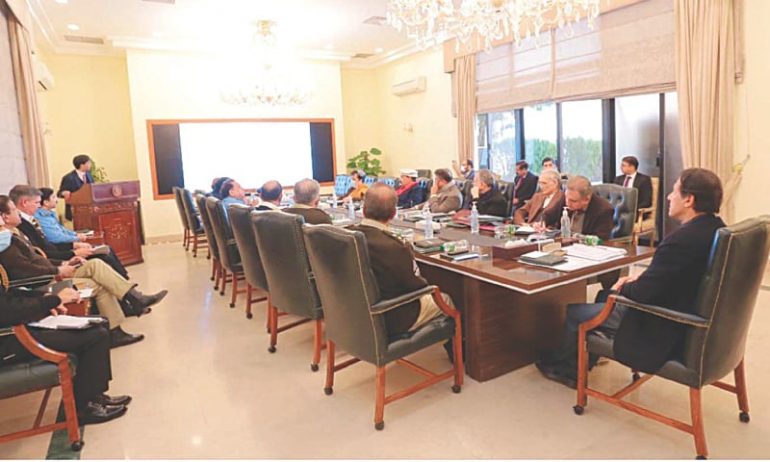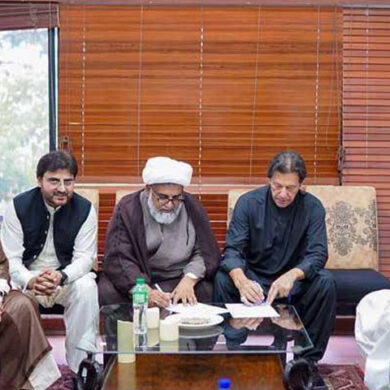The National Security Committee (NSC) endorsed the National Security Policy on Monday, emphasizing the need for economic stability in a comprehensive national security strategy.
Prime Minister Imran Khan presided over a meeting of the National Security Council (NSC), the government’s highest-ranking consultative and decision-making body for coordinating national security concerns.
Also read: First-Ever National Security Policy Of Pakistan Will Be Introduced Today in NSC Meeting
The federal ministries of foreign affairs, defense, information and broadcasting, interior, finance, and human rights, as well as the national security adviser, service chiefs, and senior officials, attended the meeting.
The administration is touting the five-year policy document, which covers the years 2022-2026, as the first-ever strategy paper of its sort, outlining the state’s national security vision and directions for achieving those goals. It will serve as a roadmap for the government’s foreign, defense, and economic policies and decisions.
Following the clearance from the powerful NSC, the paper will be forwarded to the federal cabinet for approval, which appears to be a formality.
Although the strategy will not be made public until later, it is said to strive to exploit the symbiotic links between human, economic, and military security, with citizens’ safety and prosperity at the center of the whole-of-government approach.
It addresses both traditional and nontraditional security issues, such as the economy, food, water, military security, terrorism, population growth, and interactions with the outside world, particularly major powers.
The manifesto emphasizes economic diplomacy as the focal point of Pakistan’s foreign policy in order to avoid being dragged into bloc politics in changing world order.
Prime Minister Khan lauded the National Security Policy’s formulation and acceptance as a watershed moment. He instructed National Security Adviser Moeed Yusuf to produce a monthly report on progress toward putting the policy into practice, and he directed the various government agencies to develop a coordinated strategy for effective implementation.
The NSC was informed on the policy’s broad parameters, which were drafted by the National Security Division.
All state institutions, including provincial governments and the governments of Gilgit-Baltistan and Azad Jammu, and Kashmir, participated in several rounds of feedback consultations on multiple versions. To ensure that the policy process is inclusive, over 600 academics, analysts, civil society activists, and students from around Pakistan were consulted.
A copy of the policy was also shared with the Parliamentary Committee on National Security earlier this month. The opposition parties, on the other hand, boycotted the meeting.
The National Security Policy is planned to be a dynamic document that will be revised each year and during government, transitions to assist keep the government up to date on policy priorities in a rapidly changing global environment. The policy’s development began in 2014.



